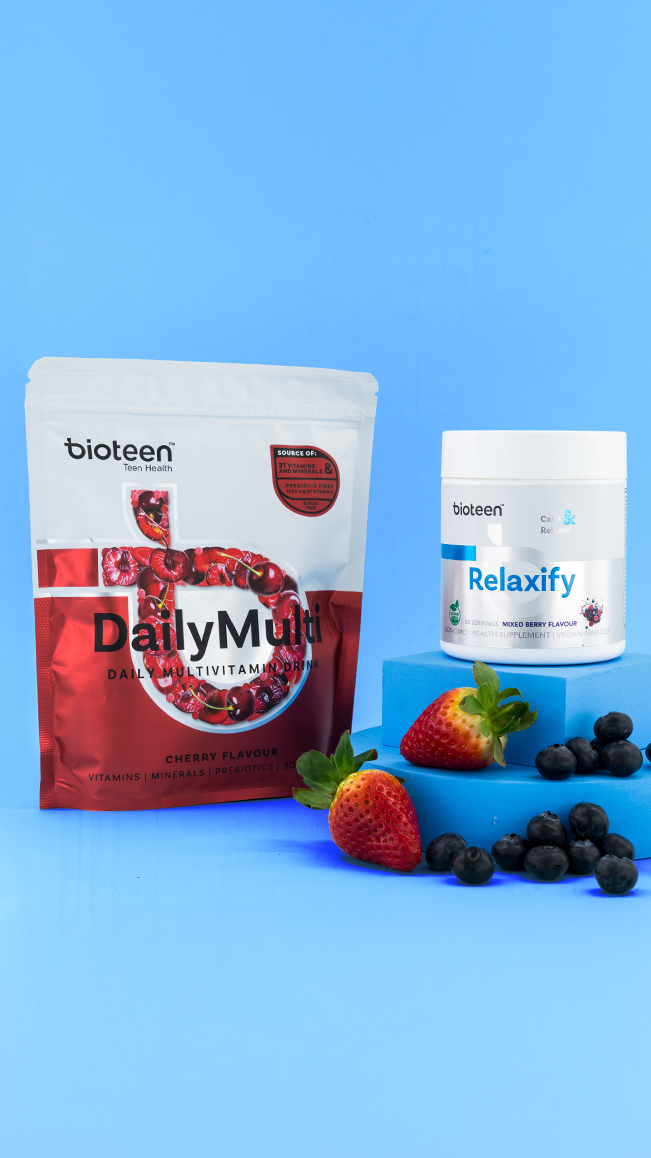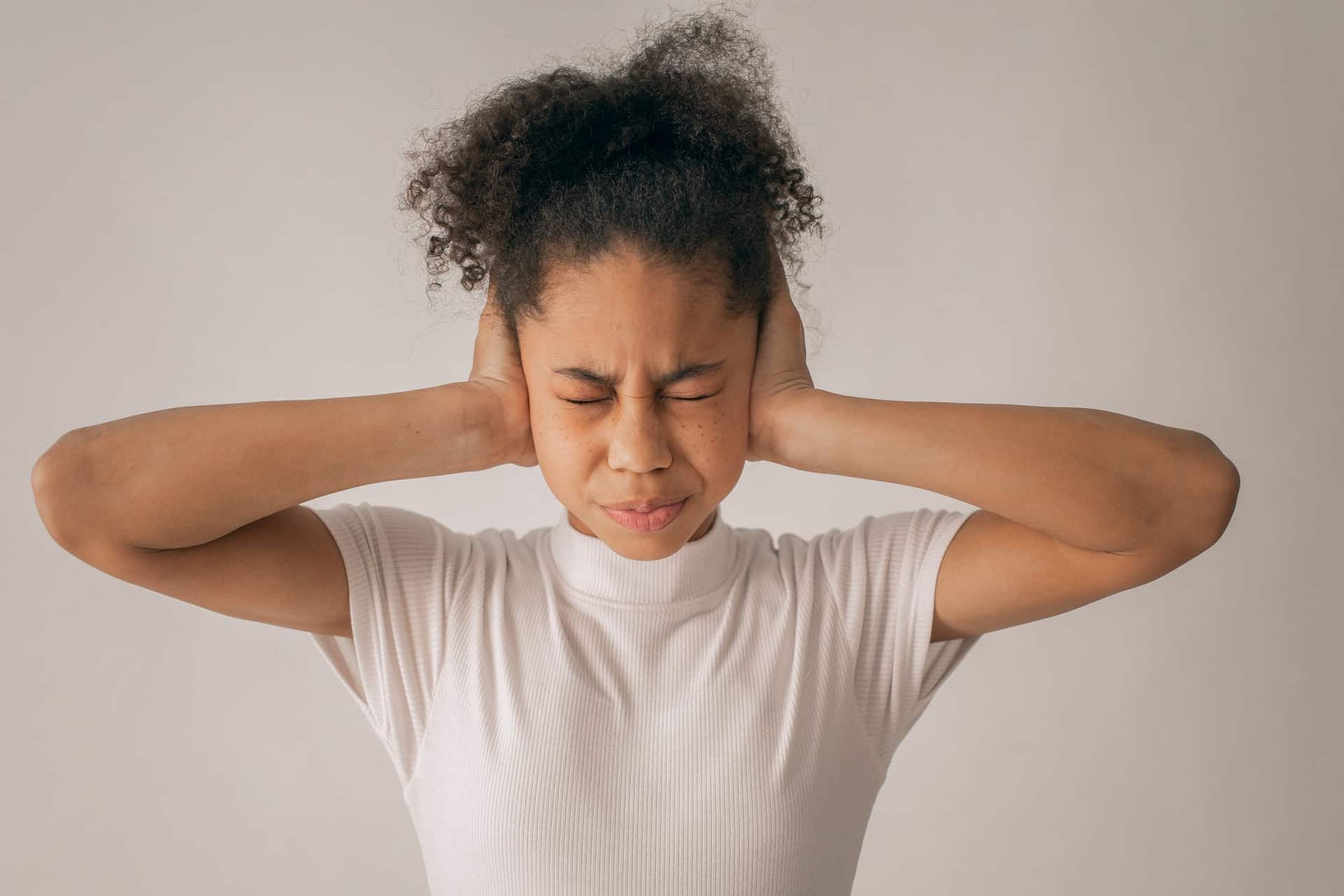
WHAT PARENTS NEED TO KNOW ABOUT TEEN NUTRITION
You are feeling a bit concerned about your teenager. You have noticed that s/he is complaining about headaches and stomach aches more often than usual. S/he is struggling to get a good night’s sleep and is constantly complaining about having a stiff neck. S/he is extremely irritable. And to make matters worse s/he is worrying about everything and struggling to concentrate on anything.
Everyone has experienced problems such as these, but they are starting to interfere with your teen’s schoolwork and relationships. You know that your child is under a lot of pressure, but you are concerned that it may be more than just stress. Could your teen be struggling with anxiety?
The outward signs and symptoms of stress and anxiety look very similar. But the underlying cause is very different. One of the biggest differences is that stress is usually short lived, whereas anxiety sticks around for a lot longer and it is more debilitating1.
WHAT CAUSES STRESS AND ANXIETY IN TEENS
The modern teenager is under a lot of pressure. Studies are showing that stress levels in teens continue to climb on a yearly basis. In America teens are reporting higher stress levels than adults2.Adolescence is the period between the ages of fourteen and eighteen when rapid development and maturation occurs3. Teens are doing anything and everything to learn about themselves and where they fit in the world. There are bound to be some bumps along the way.
Some are able to handle the stresses of everyday life well. But others have not yet learnt the coping skills. Others might be more prone to anxiety and battle to stay on top of everything.
What are the causes of stress and anxiety in modern-day teenagers?
CAUSES OF STRESS INCLUDE4:
- School – The curriculum is crammed full of new information to learn. The biggest pressures come from homework and exams. But big projects and teamwork can place a lot of strain on your teen.
- Relationships – Social connections can be a minefield for teenagers. They are still figuring out who they are and so are their friends. There is going to be conflict. They are also starting to explore boyfriend-girlfriend relationships which come with strong emotions.
- Life changes – In a very short space of time your child is transitioning from childhood to adolescence to being a young adult. With that comes a lot of change. They will move schools, finish high school and start tertiary education. All while navigating changes to their bodies and minds.
- Activities – Between school, sport, friends and family, teenagers lead very busy lives. Time pressure can be significant, often overwhelming.
- Family conflict – The transition towards independence can be rocky. Now is the time for teens to express their own opinions and make their desires known.
- Lack of sleep – The teen’s circadian rhythm changes from an early bedtime to a later bedtime. But they still need eight to ten hours of sleep every night. Many teens do not get enough sleep.
CAUSES OF ANXIETY RUN A BIT DEEPER5:
- High expectations – Everyone wants to be the best they can be. And parents want their children to be successful and self-sufficient as adults. Teenagers have a lot of pressure on their shoulders from parents, teachers and themselves. Failure to meet these expectations can be a cause for anxiety.
- Brain development – The teenage brain is still immature. They are not yet capable of looking after themselves. Quite often they don’t really know what they are doing.
- Parental disapproval – As much as your teen wishes to be independent, they really need their parents to approve of their choices.
- Peer pressure – Now is the time to experiment and push boundaries. Your child may not like what their friends are doing but they feel pressured into tagging along so that they are not left out or sidelined. The fear of missing out is very real.
- Drinking and drugs – Closely related to peer pressure is alcohol and drugs. Whether or not your teen experiments with these substances, s/he may still experience anxiety about them.
STRESS AND ANXIETY DEFINED
With all the things that could cause your teenager to feel stressed, overwhelmed and anxious, it is a good idea to be able to identify which condition your teen is dealing with.Stress is a normal physiological and psychological response to a trigger in the environment. When we perceive a threat or there is a demand placed on us, the stress response is triggered. Stress hormones such as adrenaline and cortisol are raised, the heart beats faster and we are ready to take action6.
The stress response is designed to be short lived. Our ancient ancestors would have dealt with an immediate threat and then carried on with their day. Our teens are faced with one stressful situation after another resulting in chronic stress. While some stress is good for us and motivates us to get things done, too much stress leaves us feeling stressed out and overwhelmed7.
Like stress, anxiety is a normal physiological reaction. But it is characterised by the anticipation of fear and danger rather than a definite threat. Teens who suffer from anxiety may feel helpless, ill at ease and worried all the time8.
MANAGEMENT OF STRESS AND ANXIETY
The management of stress and anxiety share many of the same interventions9:- A healthy diet
- Regular exercise
- Meditation
- Controlled breathing
- Journalling
- Therapy
- Making time for fun and relaxation
- Spending time outside
STRESS AND ANXIETY – KNOW THE DIFFERENCE
Although on the face of it stress and anxiety appear to be the same, or at least very similar, it is important to identify which one is affecting your teen. If your child is able to deal with their immediate stress and happily move on, you don’t need to be too concerned. If anxiety is the problem, it is important to help your teen manage their anxiety and to get help from a medical professional.REFERENCES
- Stress vs Anxiety: How to Tell the Difference & Get Help . Psycom.net – Mental Health Treatment Resource Since 1996. 2021 . Available from: https://www.psycom.net/stress-vs-anxiety-difference
- . Apa.org. 2021 . Available from: https://www.apa.org/news/press/releases/stress/2018/stress-gen-z.pdf
- Sacks D. Age limits and adolescents. Paediatrics & Child Health. 2003;8(9):577-577.
- Coward I. Adolescent Stress: Causes, Consequences, and Communication as an Interventional Model. Canadian Journal of Family and Youth / Le Journal Canadien de Famille et de la Jeunesse. 2018;10(1):25-51.
- Narmandakh A, Roest A, de Jonge P, Oldehinkel A. Psychosocial and biological risk factors of anxiety disorders in adolescents: a TRAILS report. European Child & Adolescent Psychiatry. 2020;.
- Sheth C, McGlade E, Yurgelun-Todd D. Chronic Stress in Adolescents and Its Neurobiological and Psychopathological Consequences: An RDoC Perspective. Chronic Stress. 2017;1:247054701771564.
- Condon E. Chronic Stress in Children and Adolescents: A Review of Biomarkers for Use in Pediatric Research. Biological Research For Nursing. 2018;20(5):473-496.
- What Are Anxiety Disorders? . Psychiatry.org. 2021 . Available from: https://www.psychiatry.org/patients-families/anxiety-disorders/what-are-anxiety-disorders
- Tips to Manage Anxiety and Stress | Anxiety and Depression Association of America, ADAA . Adaa.org. 2021 . Available from: https://adaa.org/tips












